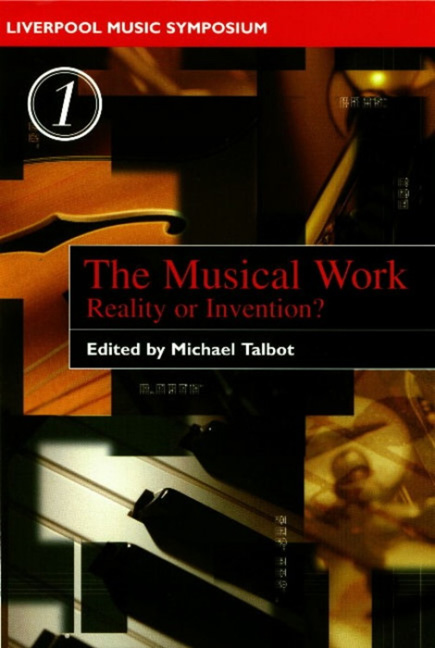Book contents
- Frontmatter
- Contents
- Notes on Contributors
- Introduction
- 1 Some Thoughts on the Work in Popular Music
- 2 Intertextuality and Hypertextuality in Recorded Popular Music
- 3 Work-in(g)-Practice: Configurations of the Popular Music Intertext
- 4 Work and Recordings: The Impact of Commercialisation and Digitalisation
- 5 The Practice of Early-Nineteenth-Century Pianism
- 6 Looking Back at Ourselves: The Problem with the Musical Work-Concept
- 7 ‘The Work’: An Evaluative Charge
- 8 The Work-Concept and Composer-Centredness
- 9 The Musical Artwork and its Materials in the Music and Aesthetics of Busoni
- 10 Re-composing Schubert
- 11 ‘On the Problems of Dating’ or ‘Looking Backward and Forward with Strohm’
- Index of Musical Compositions and Collections
- Index of Personal Names
5 - The Practice of Early-Nineteenth-Century Pianism
- Frontmatter
- Contents
- Notes on Contributors
- Introduction
- 1 Some Thoughts on the Work in Popular Music
- 2 Intertextuality and Hypertextuality in Recorded Popular Music
- 3 Work-in(g)-Practice: Configurations of the Popular Music Intertext
- 4 Work and Recordings: The Impact of Commercialisation and Digitalisation
- 5 The Practice of Early-Nineteenth-Century Pianism
- 6 Looking Back at Ourselves: The Problem with the Musical Work-Concept
- 7 ‘The Work’: An Evaluative Charge
- 8 The Work-Concept and Composer-Centredness
- 9 The Musical Artwork and its Materials in the Music and Aesthetics of Busoni
- 10 Re-composing Schubert
- 11 ‘On the Problems of Dating’ or ‘Looking Backward and Forward with Strohm’
- Index of Musical Compositions and Collections
- Index of Personal Names
Summary
‘Formerly one could expect from a performing virtuoso that he elucidated, interpreted and clarified a masterwork; nowadays one wants to admire the skill of an individual …. Formerly it was the piece that mattered; now it is the person that counts’. August Kahlert's observations epitomise a shift from works to practices within the pianism of the early nineteenth century. He was documenting the final stages of a post-Classical virtuosity whose heyday was the 1820s and 1830s, and within a relatively short time-span the trend he describes had been reversed. Already by the mid-century, a genre- and performance-orientated culture had been been largely ‘returned’ to a work-orientated culture. In this essay I will characterise that journey (from genre and performance to work) in terms of changing configurations within the practice of pianism.
My understanding of the term ‘practice’ is somewhat indebted to Alasdair MacIntyre, although I am by no means supportive of his clean separation between the interests of a practice (with its own setting, history, tradition, values and ideals) and those of its enabling and supporting institutions (structured in terms of power and status). It is enough to say that recovering a practice means more than documenting the institutions of music-making. Unlike an institution, a practice has an ethos; it exercises virtues as well as skills. Characteristically, it offers choices to its participants within certain parameters. Its relevance to my work is that it builds the performer – the act of performance – centrally into the historical study of a repertory. Interestingly, the term crops up rather often in the chapters dealing with popular music in this volume, and it may be no bad thing to approach art music repertories from a perspective more commonly employed in popular music studies. David Horn's characterisation of a ‘popular music event’, for instance, comes close to invoking a practice in MacIntyre's sense, though without a constitutive ethos or authenticity. And I might add that Horn's characterisation could be applied almost as it stands to an early-nineteenth-century benefit given by a pianist-composer.
- Type
- Chapter
- Information
- The Musical WorkReality or Invention?, pp. 110 - 127Publisher: Liverpool University PressPrint publication year: 2000



